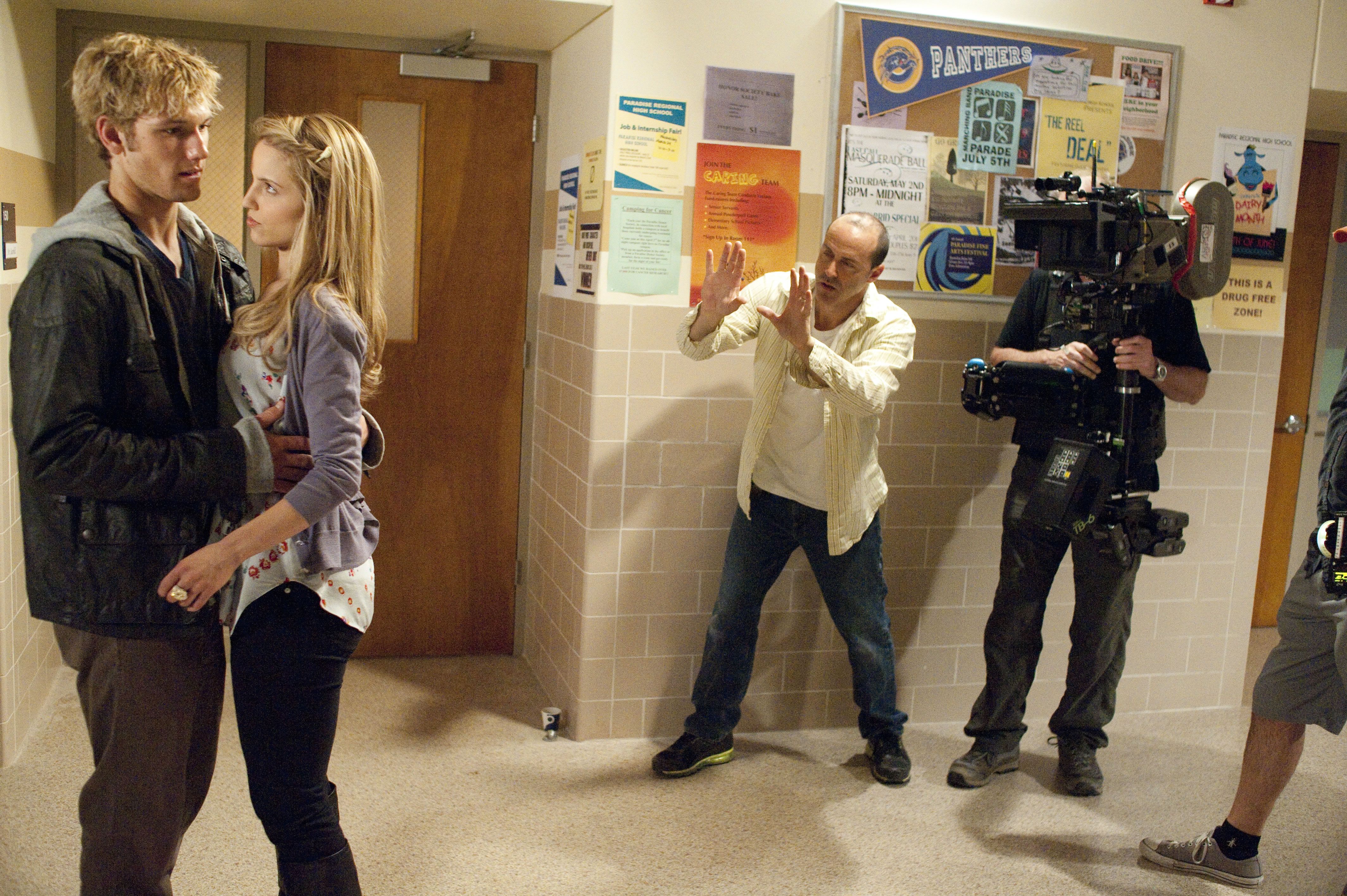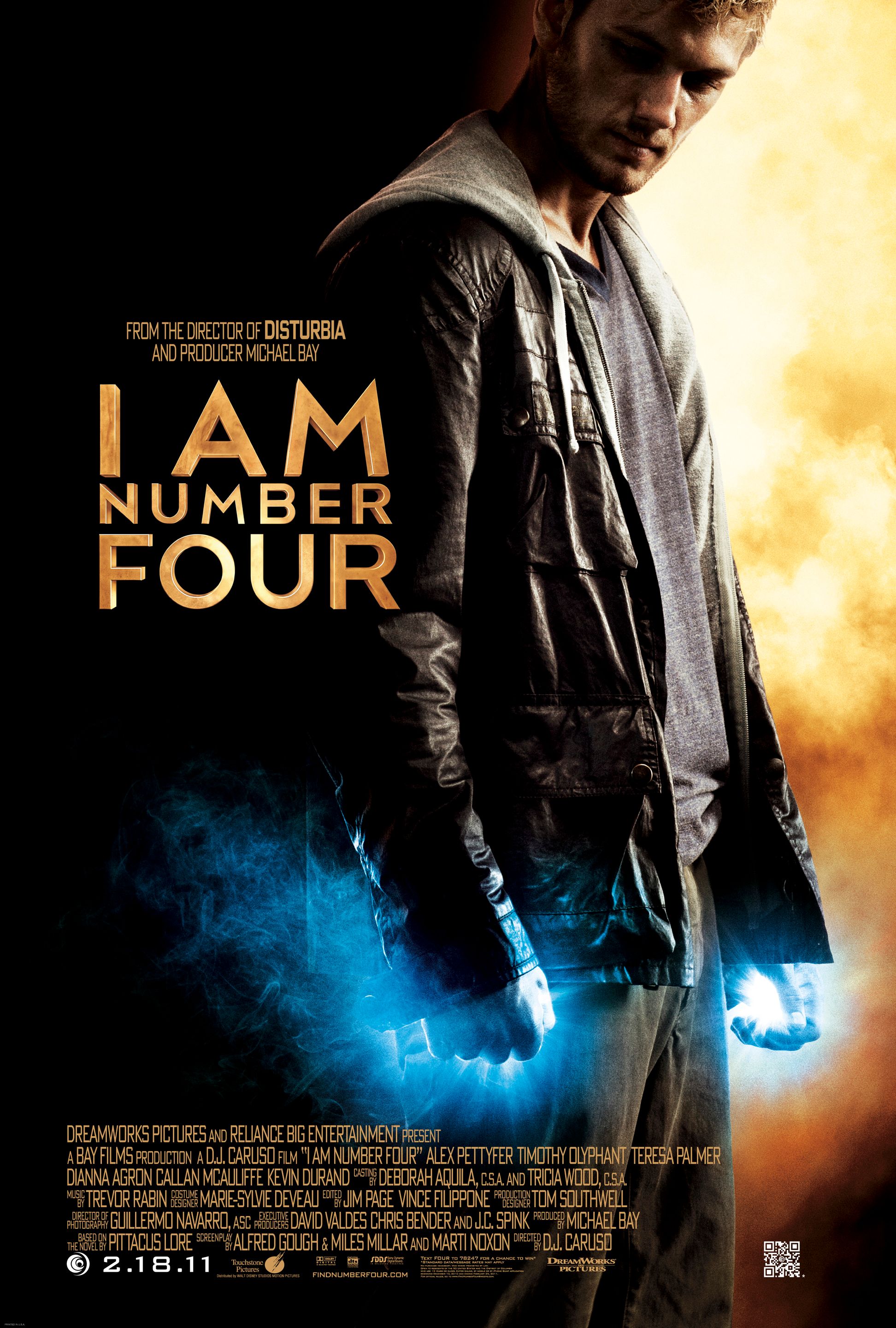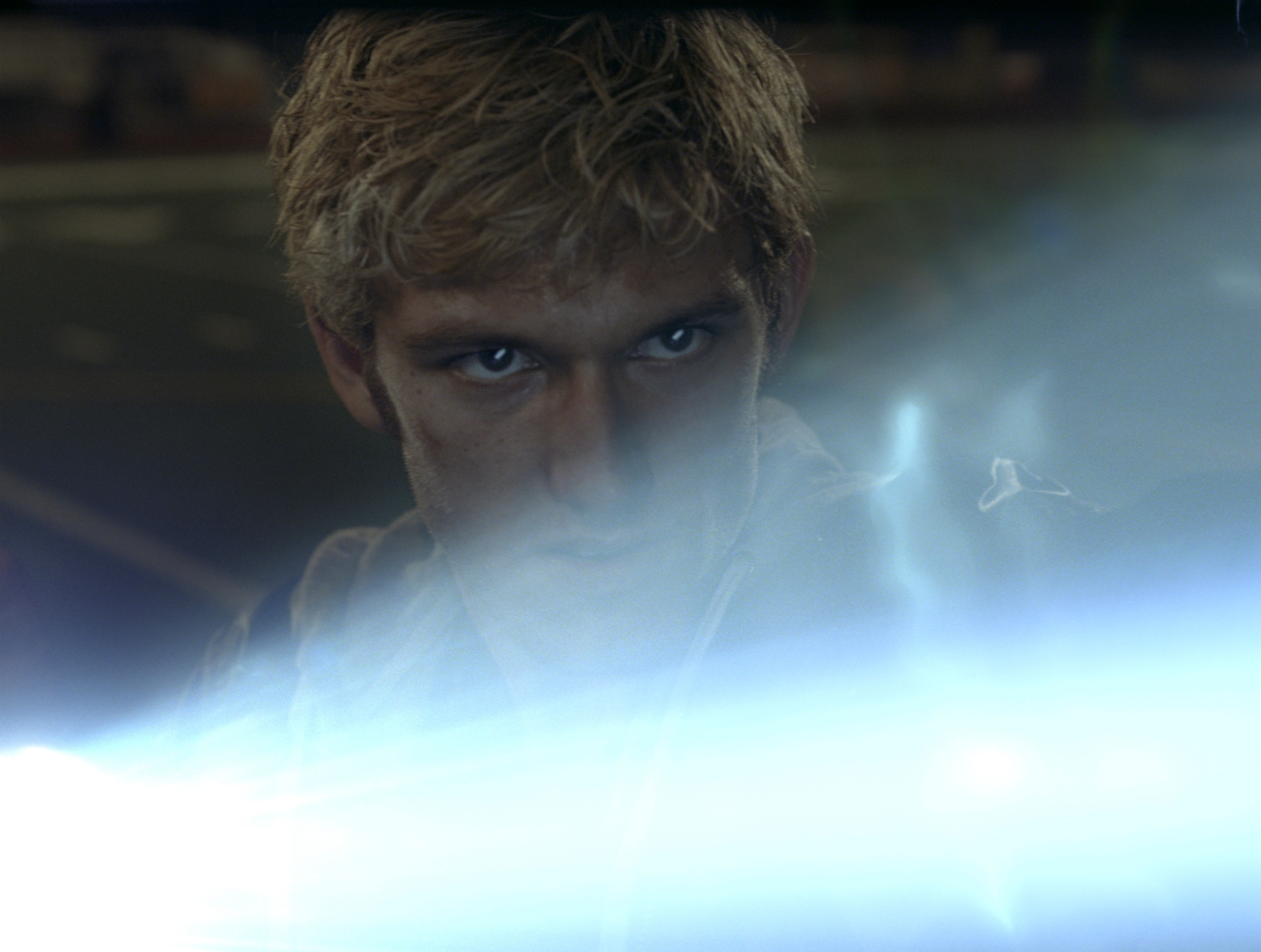The movie revolves around a group of nine infant aliens who are sent to Earth to hide from their enemies. The nine aliens can only be killed in numerical order and with the first three already dead, Number Four (Alex Pettyfer), must fight for his life. Now, along with his new girlfriend, Sarah (Agron), they must team up with Number Six (Palmer) and learn how to unlock his secret powers, if they have any chance of survival. We recently had a chance to visit the I Am Number Four cutting room and watch some of the rough footage from the upcoming film. Upon arrival we were greeted by the film's director D.J. Caruso and his editor Jim Page. Before we screened the footage prepared for us, the director had this to say:
"You are seeing it fresh off the avid, it's sort of the avid mix. We have some stems, we did sort of a temp mix last night. We are getting ready for a screening next week. So I just want to show you some stuff and see what you think. The music is temporary, some of it is Trevor Rabin's score but some of it is temporary."
Finally, the lights went down in the editorial office and we began watching the footage. While we don't want to give too many details away and spoil the upcoming movie, we can say that the footage looked very interesting and the effects were super cool. We basically saw the beginning of the film, which starts with the hunting and execution of Number Three. We are then introduced to Alex Pettyfer's character, Number Four, who is enjoying his life living in Florida when he has a vision of Number Three's death. Now Number Four and his protector, Henri (Timothy Olyphant), are on the run ... again. Some of the other scenes we got to see included Number Six's (Teresa Palmer) explosive introduction, a romantic scene between Pettyfer and Dianna Agron and finally, the third act's massive battle scene between our heroes and the evil Mogadorians. After the screening Caruso took time to answer some questions and here is what he had to say:
To start with, can you talk about Steven Spielberg's influence and involvement with the film now that you are in post-production?
D.J. Caruso: Oh yeah he came in Friday. He is right across the way so any time we want to show him something, visual effects, music, he comes in. Anytime we are stuck and we have two versions of something, we are sure to always try and get his opinion because he is so close.
In the book, most of the action comes at the end of the story but from what we saw it looks like you spread it though out the film, was that a conscience choice?
Can you talk about your choice to cast fresh faces as apposed to big name actors?
D.J. Caruso: The movie was the kind of a movie where you don't need to have any movie stars to get the movie going. Conceptually this was a good concept and basically just finding the best people for the roles, which is very liberating. Because usually a movie doesn't get $10 million unless you get Brad Pitt, so it was fun.
You talked about Spielberg's influence on the film, can you talk about how Michael Bay has been able to help with the visual effects?
D.J. Caruso: You know, Michael Bay was actually a huge help and today you saw some stuff before even he saw it. He has been really helpful with the island, the monsters and how these things integrated and what atmosphere to have, depth of field and focus on lenses. So he has been really, really helpful with the visual effects. Lots of times, he was up at ILM and he would say, "Do you want me to go into your room and check things out" and he would go do that. So he is really helpful in that way. Steven is really helpful in story shaping, so it is a good combination.
Is there a major theme or idea that you think is most important to this film?
D.J. Caruso: Well you know I think it is about this disenfranchised guy who keeps moving and he finally finds a place that he likes and he wants to stay. I think the relating thematic element for teens to get out of it is, who you think you are and who you ultimately become are two different people. I know that it sometimes a conflict.
You have dealt with these issues before in "Disturbia" and "Eagle Eye" so what is it about that theme that you really relate to?
D.J. Caruso: I just think you always want to find some in a dark period in their life and ultimately at the end of the movie see a little bit of light. Even from The Salton Sea as dark as that movie was, there is a little bit of hope at the end. In order to appreciate all the great things life has to offer, you have to experience some bad things. I find myself attracted to characters that are experiencing those bad things in the beginning and sort of over come that.
You are adapting a novel which is planned to be a series but you are making the first film before the second book is published, so are there any ideas that are being worked in now in order to pay off later in possible sequels?
The Mogadorians are described as seven feet tall, yet they have been hiding on Earth unseen, how do you explain how they have been able to blend in for so long?
D.J. Caruso: You will see in the film how they try to integrate themselves but they don't quit fit in. So you can see there are some odd things. So we kind of blend it in. They sort of dress down when they are not in their battle mode, there is a different mode they have that sort of blends in ... sort of.
Finally, can you talk about the powers that the characters have in the movie and how you decided on what to show on screen and what not to show?
D.J. Caruso: I think particularly in the book, Number Four is a lot more knowing about the powers he has and what is happening in his life. Cinematically we thought we wanted to have him discover more of these things. Henri sort of keeps him in check and keeps him waiting for these things to happen. I think it is much more interesting from a cinematic stand point, not necessarily from a literary standpoint, that you are with your character when he is discovering these things. So you experience that as a viewer with him. You are learning all about the same stuff he is, instead of already knowing he already has it. I think it is a better story telling device.



